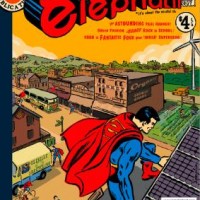From the Autumn 2005 issue.
We have the seasons pretty well licked in the temperate zones. We have our warm houses, our air-conditioning, insulation, central heating, our clothes, our food and drink when and what we want. But sometimes good ol’Mother Nature penetrates our carefully constructed habitat. When it hits 100 degrees or more, we notice. We’re sleepy, we’re crabby. We read about the homeless who die in the heat in Phoenix or Chicago. In two minutes, 37 inches of rain falls in India’s monsoon, a sky-tsunami.
So come hell or high water, summer teaches us its wisdom. There is little or nothing to be done. Give up the list of projects, surrender to the noonday sun—even if you’re not a mad dog or an Englishman. This forced stop to our relentless march of manic ambitions is what summer is all about. The sun does all the work. All we can do is try to keep the garden watered, and find shade. We’re dealing with fire. Sun rules. We are exposed—to ourselves. Our sense of warmth toward others, our sense of living our lives with passion…whatever it is, the summer season lets us discover and move beyond whatever we are depressed about in our lives.
But now, finally, it’s autumn. The equinox, on September 21st, is the midpoint between the hottest and the coldest. Now we reap what we sow on both outer and inner landscapes. Will Iraq discover peace with (or without) our help? Will the work we do mean something to us? Are we still pilgrims on a path, searching for meaning? Is our libido still alive? Did we see Mars as it approached its closest-ever contact with earth? It’s time for giving thanks, and Thanksgiving.
Autumn is also time for Rosh Shoshanah. The people of the book consider this the season for for the soul-search-harvest. Time to search our hearts for misdeeds, conscious and unconscious, and for the things we didn’t do that we said we would do. And so we make atonement, and watch the light fade into winter’s deep silence.
Via Susan Edwards, faculty at Naropa for 15 years.










Read 2 comments and reply